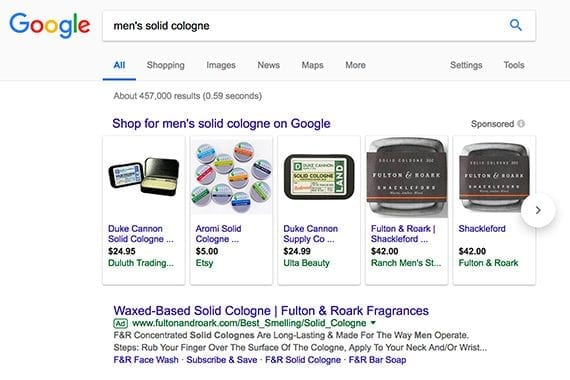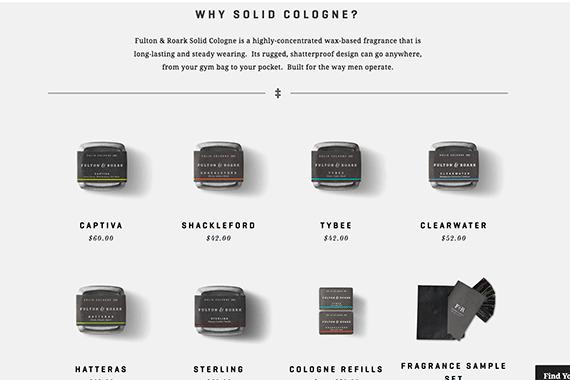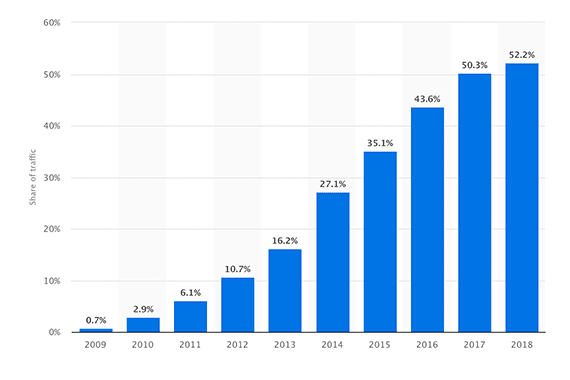The web page that potential customers see when they click on a Google AdWords ad could be affecting how much an ecommerce business pays per click and where it appears in search results.
Google AdWords Landing Page Experience is a measurement of how well an ad’s landing page serves potential customers. It describes whether Google believes the landing page is likely to meet user expectations.
This metric impacts an advertiser’s AdWords Quality Score and is a factor in Ad Rank, which in turn affects the cost per click an advertiser pays; the position of an ad in the ad auction; and even whether the ad will run or not.
Martin Roettgerding of Bloofusion Germany, a Berlin-based search marketing agency, estimated that Landing Page Experience accounted for more than a third of a typical advertiser’s Quality Score. So ignoring this single factor may have a significant impact on a company’s pay-per-click advertising success.
Google has outlined recommendations for landing page optimization. Follow these and your company’s AdWords Landing Page Experience score should improve. What’s more, some of Google’s recommendations for improving Landing Page Experience are also conversion optimization best practices. Put another way, boosting your business’s Landing Page Experience score for AdWords might also help you sell more.
Relevant, Useful, Original
Perhaps the cardinal sin in any Google AdWords campaign is to simply dump folks on a website’s home page. While this might be the first page an advertiser thinks about when she imagines her company’s website, it is probably the least relevant destination for a potential customer clicking through from a product search on Google.

There should be a relationship between the keyword(s) a user entered in his search, the ad copy he sees, and the landing page.
—
For example, if you searched for “men’s solid cologne” on Google and then clicked on an ad that read “Waxed-Based Solid Cologne,” you would expect to find a page filled with solid cologne options. Anything less would not be relevant or useful. It wouldn’t meet your expectations. And you likely would not follow the site’s navigation to locate men’s solid cologne.

The landing page should also reflect a general or specific search. A general search for a category of products should result in a category page, not the product detail page for a specific item.
There should be a strong relationship between the keyword(s) a shopper used to search on Google, the ad he is shown, and the page he lands on.
Returning to the solid cologne example, this search query was general to the category. The ad was similarly general to solid colognes, and the landing page was a solid cologne category page. All are appropriate.
But if the search had been for specific scent or brand, such as “tobacco scented solid cologne,” the ad and the landing page should be as specific.
Load Quickly
Google likes web pages that load quickly. In fact, page speed has been an important part of how Google ranks organic search results since at least 2009. Beginning in July 2018, page speed will be part of the mobile-search ranking algorithm, too.
Google AdWords is known to favor fast-loading landing pages. So working on a site’s overall performance should also improve its AdWords Landing Page Experience score. This applies to specific landing pages, too.
Mobile Optimized
Mobile optimization is no longer a way to gain a competitive advantage over less sophisticated merchants. Rather, having a mobile-optimized site is as important as having a site at all.
Consider that in 2018 an estimated 52.2 percent of all internet traffic worldwide will originate from a mobile device, according to Statista. As much as 60 percent of search engine traffic comes from mobile.

About half of all internet traffic around the world originates from a mobile device. Source: Statista.
Given that many, if not most, of a company’s potential customers will be using a mobile device, it only makes sense to offer a mobile shopping experience.
Google recommends using accelerated mobile pages — AMP — for AdWords campaigns. Marketers may also want to consider progressive web apps for a store’s entire site.
Easy to Navigate
Google AdWords presumably wants a shopper to be able to click through to a page that answers her questions or otherwise leads her to the specific item she wants to buy.
An effective landing page, however, does not eliminate the need to navigate. For example, shoppers should be able to quickly identify product options, instantly locate the call to action, and easily find supporting information.
Where Landing Page Experience is concerned, Google dislikes pop-ups and similar features that can interfere with a visitor. This also makes good sense for advertisers. If someone has just arrived on an ecommerce site eager to buy a blouse, the store doesn’t want to distract her with a newsletter registration pop-up.
Secure
Every page of an ecommerce website should use the secure HTTPS protocol and offer visitors an encrypted shopping experience.
Google explicitly mentions HTTPS when describing a good AdWords landing page. Given the relative ease of securing an ecommerce site, do not skip this step.